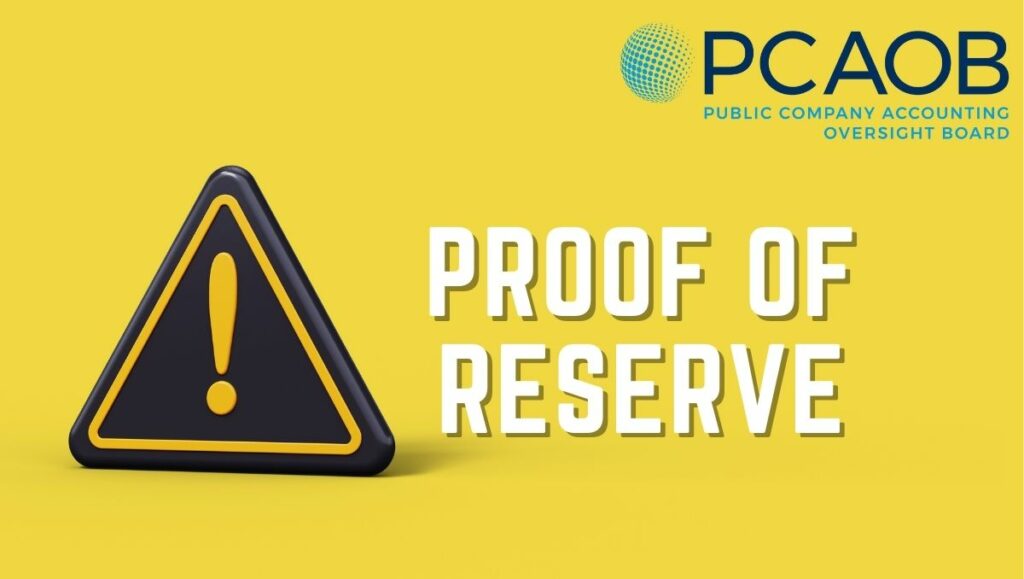
The world of cryptocurrencies is largely an unregulated and unpredictable arena, but investors are looking for some stability. In response, many cryptocurrency companies are touting “proof-of-reserve” reports, claiming they’ll provide a layer of assurance that an investor’s funds are secure. However, the US organization that oversees auditing standards, the Public Company Accounting Oversight Board (PCAOB), warns investors against relying on these reports.
The PCAOB’s statement on Wednesday pointed out that proof-of-reserve reports are not audits and do not follow any particular standard. It also notes that these reports take a simple snapshot of assets and are not able to measure a cryptocurrency entity’s liabilities or whether assets were borrowed to appear as though there is sufficient collateral. The PCAOB stressed that customers should “exercise extreme caution” when relying on these reports and concluded that they provide no meaningful assurance.
Acting Chief Accountant of the Securities and Exchange Commission (SEC), Paul Munter, echoed the PCAOB’s warning by telling The Wall Street Journal that investors should not place too much confidence in these reports. Munter explained that the reports lack enough information for stakeholders to assess if a company has enough assets to meet its liabilities. In addition, he expressed frustration at the evasive structure of many crypto companies.
These warnings come in the wake of several high-profile crypto companies having gone bankrupt this past year, including Three Capital Arrows, Celsius, and FTX. It is understandable that investors would be wary and are looking for some assurance regarding the trustworthiness of their investments. Unfortunately, audit firms such as Mazars Group that used to provide these services for various global exchanges, including Binance, KuCoin and Crypto.com, recently announced that they were no longer working with crypto firms.
Cryptocurrency exchanges are now forced to look for new audit firms, and many large ones, such as the “Big Four” (Deloitte, EY, KPMG and PwC), appear unwilling to do so. It’s a result of the murky nature of crypto reserves that these big firms would like to avoid. John Reed Stark, former chief of the SEC of Internet Enforcement, recently raised a “red flag” on Twitter regarding Binance’s proof-of-reserve report. He pointed out that the report failed to express any opinion or assurance conclusion, and didn’t vouch for the numbers presented.
In conclusion, the PCAOB and the SEC’s warnings for investors to be “very wary” of crypto companies touting proof-of-reserve audits should raise some eyebrows. Without auditing firms willing to provide assurance to crypto firms, investors are left without protection and at a greater risk of being taken advantage of by firms with fraudulent intentions. Investors need to be aware that relying solely on a proof-of-reserve report is not enough to protect them.


